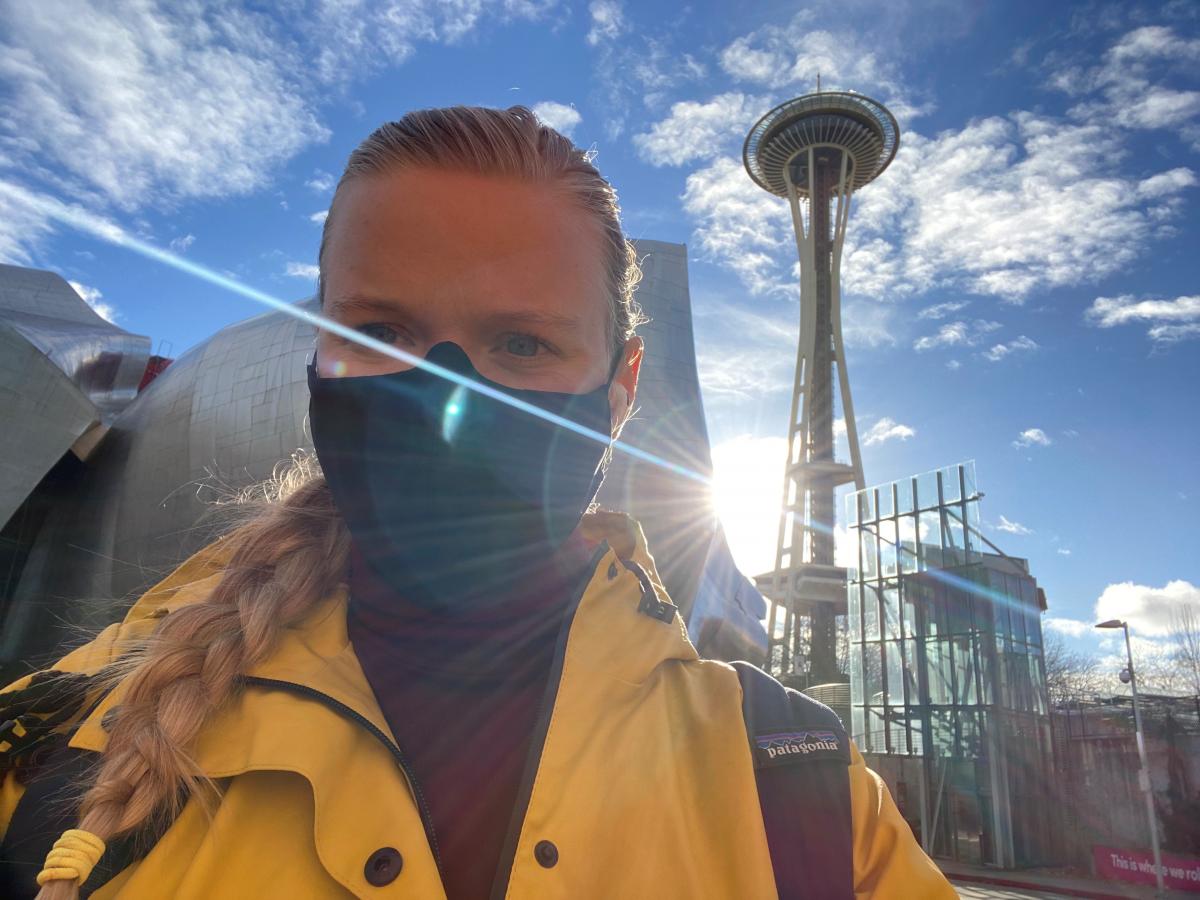
Q: Please tell us a little bit about yourself and what starting a new program has been like in the past year
Q: As a first-year graduate student, it was daunting to start a PhD program in a new city (especially in the midst of a global pandemic!), but the people in the Pathobiology program and the splendor of Seattle have made the transition into graduate school engaging and meaningful. In my free time, I'm also an avid scuba diver, Nordic skier, foodie, and bike commuter.
Q: Why did you decide to attend the UW for graduate school?
When deciding on which graduate program to attend, the three most important factors were 1) active commitment to global health, 2) interdisciplinary curriculum, and 3) top-tier infectious disease research. The Interdisciplinary Pathobiology Doctoral Program was the perfect combination of these three factors, all while being located in Seattle, which in my humble opinion is the most beautiful city in the United States.
Q: What are your research interests?
A: To me, infectious disease research should not be implemented in isolation; instead, the science should be contextualized along the interdisciplinary continuum of global health. While a Chemistry major and Community and Global Health concentrator at Macalester College in St. Paul, MN, I was able to explore the continuum of global health from summer internships in initial R&D at Colorado State University to community health mobilization in Quito, Ecuador to macrolevel policy evaluation of hepatitis diagnostics at the non-profit biotech company Foundation for Innovative New Diagnostics (FIND) in Geneva, Switzerland. Following graduation, I continued to walk the line between science and public health while working in the Tuberculosis Research Section at the National Institute of Allergies and Infectious Disease in Bethesda, MD, working in the context of a BSL-3 laboratory on antitubercular drug development.